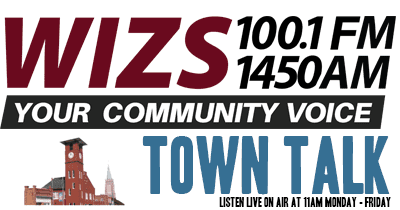THIS STORY IS PRESENTED IN PART BY DRAKE DENTISTRY
Jim Gunderson, First Aid and CPR trainer with Durham-based Divers Alert Network (DAN), appeared on WIZS Town Talk Thursday at 11 a.m.
While Gunderson reported that a perhaps surprising 20 percent of Americans have received First Aid and CPR training, he stressed the importance of the remainder of the general public having at least a basic knowledge of how to properly assist someone experiencing an emergency.
“The average response time for EMS to arrive in an urban setting is seven minutes,” explained Gunderson. “It’s 14 minutes, on average, in a rural setting. In a cardiac event, like a heart attack, for every minute you don’t have basic aid, there is a nine percent decrease in neurological recovery.”
These sobering statistics show that “every minute counts; the faster you can get care started, even before EMS arrives, the better chance that person has of surviving.”
Unfortunately, even a well-trained, experienced person administering CPR will have a low chance of successfully reviving the victim, according to Gunderson. “When you perform CPR without an AED or an automated external defibrillator, it’s about a seven percent chance of them surviving. With an AED, the survival rate goes up to as high as 25 percent.”
AEDs are now a staple in many offices and public buildings and can be used on those experiencing a cardiac emergency. The device delivers an electric shock, or defibrillation, to help the heart re-establish an effective beating rhythm.
Even though the chances of survival are low, Gunderson said having more of the public trained on First Aid and CPR is worth the effort, especially considering it could be your spouse, child or other loved one who benefits from your training.
According to Gunderson, 70 percent of cardiac events happen in the home, with 10,000 events happening annually in the workplace. Gunderson said Good Samaritan laws help protect those that render aid to the best of their ability from possible litigation.
“Whether it’s saving a life or just making them more comfortable, it’s very rewarding to know that you’ve helped a person,” he said.
First Aid and CPR classes are frequently offered by DAN, the American Red Cross, county health departments, community colleges and first responder units. Gunderson suggested taking a look at your neighborhood events or calling your local organizations to enquire about class offerings and cost. Costs typically range from $5 to $40 depending on the qualifications sought.
“At the bare minimum, I recommend people get trained in full CPR, which is chest compressions and ventilation,” Gunderson said. “They should also be taught to use an AED and how to deal with airway obstructions that cause choking. For basic First Aid skills, they should know how to stop bleeding, how to treat shock and how to splint a suspected break.”
Classes should be taught by qualified instructors and need to be American Heart Association (AHA) and International Liaison Committee on Resuscitation (ILCOR) compliant.
To hear the interview with Gunderson in its entirety, go to WIZS.com and click on Town Talk.
